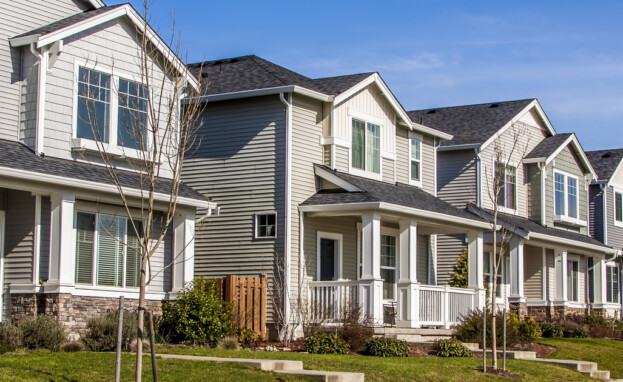Over the past several weeks, the Montgomery County Council has been holding work sessions on the 2020-2024 Subdivision Staging Policy (SSP).
The next work session will occur on Thursday, November 5. At its work sessions to date, the Council has taken straw votes on various key policies for schools, transportation, and impact taxes. Through these straw votes, the Council largely has accepted – with some crucial refinements – the Montgomery County Planning Board’s recommended framework for the SSP set forth in its draft of the policy (Board Draft). Our blog post on the Board Draft can be found here: https://www.zonedinblog.com/2020/09/04/county-growth-policy-formerly-ssp-update-planning-board-draft-transmitted-to-the-county-council/.
The following provides a summary of the key decisions that the Council has made, as well as those that remain to be made. The Land Use Group at Lerch, Early & Brewer is following the Council’s work sessions closely and can provide insights on further Council decisions and recommendations upon request.
Key Council Decisions
Schools: The Council has largely finished taking straw votes on the schools element of the SSP. Key Council decisions on the schools element are as follows:
- Under the current SSP, when school capacity reaches 120% the affected area goes into moratorium, preventing any new residential development. The Council voted in favor of eliminating the residential moratorium countywide.
- The Board Draft recommended applying Utilization Premium Payments (UPP) in all areas of the County, where the applicable school exceeds 120% capacity. The Council voted in favor of a graduated UPP scheme. UPPs would apply at 105% capacity (and corresponding seat deficit) with graduated increases applying at 120% (and corresponding seat deficit) and 135% (and corresponding seat deficit). The Council has not determined the precise amounts of the UPP.
Transportation: The full Council has not reviewed the transportation element of the SSP.
Taxes: The Council has made several key decisions on impact taxes, but many remain. The key decisions the Council has made are as follows:
- The Board recommended that Opportunity Zones, in addition to Enterprise Zones, be exempt from impact taxes. The Council, by a straw vote, agreed with the Board, but may revisit targeted areas later.
- Currently, projects providing at least 25% affordable units are completely exempt from impact taxes. The Board recommended altering this as follows: 1) requiring the affordable units to be registered in the MPDU program; and 2) reducing the exemption to the amount of lowest standard impact tax for the applicable dwelling type. The Council agreed with the Board’s recommendation.
Remaining Key Decisions
- The Board recommended placing all Purple Line station areas in the Infill Impact Area (schools) and Red Policy Area (transportation). This move would lower impact taxes and eliminate motor vehicle LATR testing. The Council has yet to take a straw vote on this recommendation.
- The Board Draft divides the County into three new categories for purposes of calculating student generation rates and school impact taxes: “Greenfield Impact Areas,” “Turnover Impact Areas,” and “Infill Impact Areas.” The Greenfield Impact Areas (Clarksburg) have the highest impact tax rates. Some councilmembers favor rolling “Greenfield Impact Areas” into “Turnover Impact Areas,” as they do not agree that growth in the Greenfield Impact Areas should subsidize impact taxes in the remainder of the County.
- The Planning Board recommended a 40% discount on school impact taxes in “Desired Growth Areas.” (See GIS map here) The Council rejected this recommendation. Councilmember Friedson has proposed a similar 40% discount on transportation impact taxes in “Desired Growth Areas.” The Council has yet to vote on Councilmember Friedson’s proposal.
- The Board recommended setting a 50-person trip trigger for the testing of pedestrian, bicycle, and transit facilities. This is a significant change from the current policy, which requires 50 trips in the relevant modal category before testing is required. The Council has yet to vote on this recommendation. The Council’s Planning Housing and Economic Development (PHED) committee supports the Board’s recommendation.
- As noted above, the Council voted to apply a graduated UPP scheme. The Council has yet to determine what the rates will be. The PHED committee would apply a 20% UPP on school impact taxes at 105% capacity, a 40% UPP at 120% capacity, and a 60% UPP at 135% capacity. Councilmember Jawando has proposed higher UPPs. (Note: UPPs will be calculated on the impact taxes associated with the individual school level that is over capacity and not the entire school impact tax amount.)
- A key piece of the Board Draft was an overhaul of the recordation tax regime that would increase the revenue generated by the recordation tax to offset discounts to impact taxes. The Council has yet to take this up in committee or as the full Council.
Next Steps:
- The County Council will hold its next SSP work session on Thursday, November 5, 2020 and must act on the County Growth Policy by Monday, November 16, 2020.

